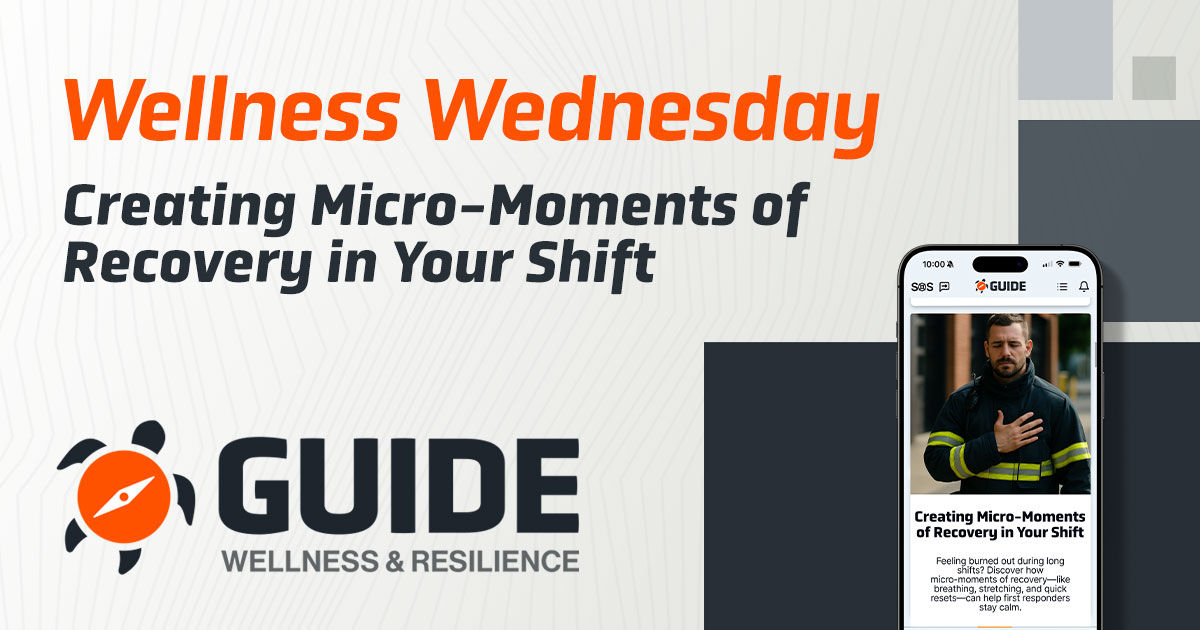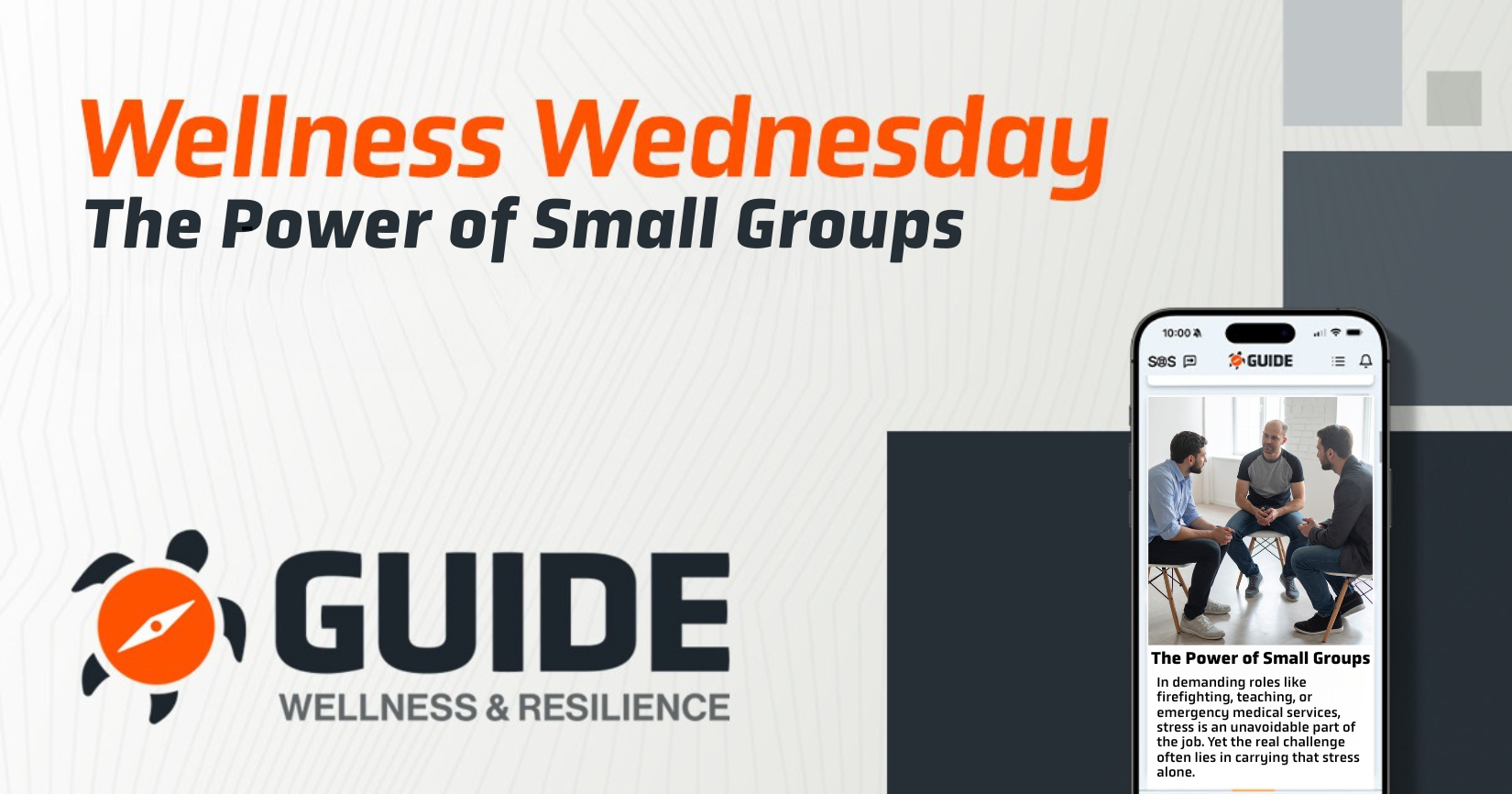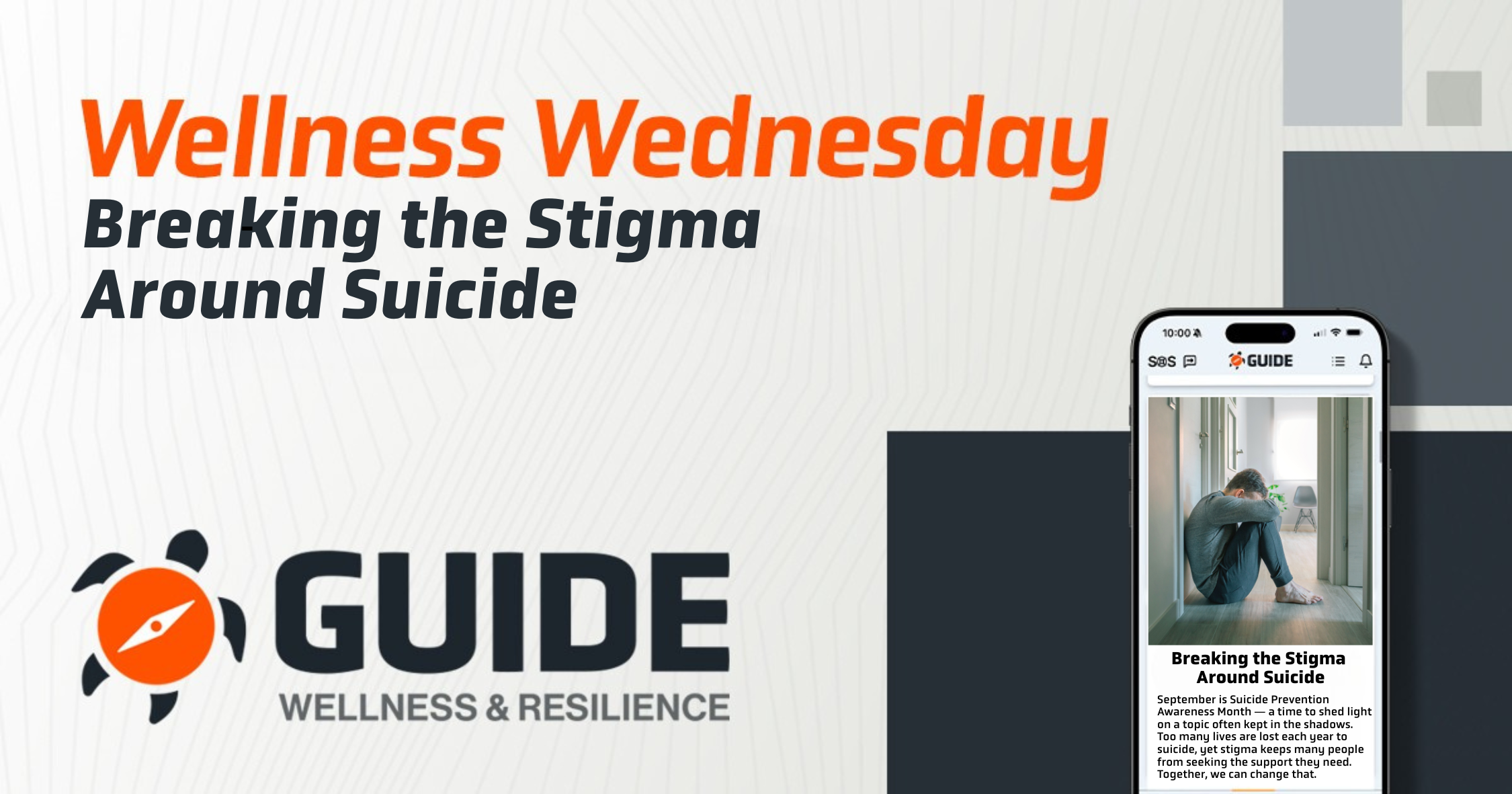For first responders and frontline professionals, breaks are rare—and long ones are even rarer. The nature of your job means high pressure, high stakes, and very little downtime. But here’s the truth: you don’t need an hour to reset your body and mind—you just need a minute.
This is where micro-moments of recovery come in. These small, intentional pauses can help you feel more focused, less tense, and more in control—even during your busiest days.
This week’s Wellness Wednesday is all about how to spot and use these micro-moments throughout your shift to reduce stress, prevent burnout, and support long-term resilience.
What Are Micro-Moments of Recovery?
A micro-moment of recovery is a short, purposeful break designed to help your brain and body reset.
They take anywhere from 30 seconds to 2 minutes and can include simple actions like stretching, deep breathing, or taking a mental pause.
Think of it like this: If you were driving cross-country, you wouldn’t wait until you ran out of gas to refuel—you’d make small, regular stops to stay on the road. These micro-breaks are your mental and emotional fuel stops.
Why Micro-Moments Matter for First Responders
You work in environments where stress is constant, the pace is fast, and the stakes are high. This often leads to:
- Cumulative stress
- Mental fatigue
- Emotional exhaustion
- Physical tension
Over time, that pressure builds up and wears you down. But even just a few micro-moments per shift can:
✅ Lower your stress response
✅ Reset your nervous system
✅ Reduce muscle tension
✅ Improve focus and patience
✅ Support emotional stability
And best of all? You don’t need a gym, yoga mat, or even a quiet room. You just need a few intentional seconds.
How to Find Micro-Moments During a Shift
The best micro-moments are built into things you’re already doing. Here are places to find recovery time in the middle of your workday:
- After finishing a call
- Before stepping out of your vehicle
- While waiting for a report to load
- Walking between buildings
- During transitions between tasks
- Before entering a high-stress scene
- While waiting on hold or at a red light
These little pauses already exist. The key is to use them on purpose.
Micro-Recovery Techniques That Work
Here are eight recovery tools you can try anytime, anywhere—even in uniform or on duty.
1. Tactical Breathing (Box Breathing)
How to do it:
- Inhale for 4 seconds
- Hold for 4 seconds
- Exhale for 4 seconds
- Hold for 4 seconds
Repeat 3–4 cycles
Use when: You feel overwhelmed, rushed, or tense.
Why it works: Slows heart rate and calms the nervous system fast.
2. Shoulder & Neck Roll Reset
How to do it:
- Roll your shoulders up, back, and down
- Gently drop your head to one side, then the other
- Breathe deeply as you stretch
Use when: You’re in the car, at your desk, or on a quick break.
Why it works: Eases tension from gear, posture, and stress.
3. 60-Second Mindful Pause
How to do it:
- Stop what you’re doing
- Focus on one thing around you (sight, sound, or feel)
- Breathe slowly and deeply
- Let your thoughts slow down
Use when: You feel mentally scattered or overstimulated.
Why it works: Trains your brain to return to calm—even in chaos.
4. Hydration Check-In
How to do it:
- Pause for a sip of water
- Take 3 slow breaths
- Notice how your body feels
Use when: You’re moving between tasks or about to respond to a call.
Why it works: Rehydrating improves focus and energy in seconds.
5. Positive Self-Talk Reset
How to do it:
- Pause and tell yourself: “I’m doing my best.”
- Try: “I’ve handled tough days before—I’ve got this.”
- Or: “One step at a time. Keep going.”
Use when: You feel discouraged or mentally drained.
Why it works: Words shape mindset. Positive words boost resilience.
6. Hand Stretch and Shakeout
How to do it:
- Stretch your fingers wide, then make a fist
- Shake out each hand for 10 seconds
- Roll your wrists
Use when: You’ve been typing, gripping, or sitting still for too long.
Why it works: Restores blood flow and eases hand tension.
7. Quick Gratitude Hit
How to do it:
- Think of one good thing about today
- Say it in your head or out loud
Examples:
➡ “That call went smoother than expected.”
➡ “It’s sunny out.”
➡ “Someone had my back earlier.”
Use when: You feel frustrated or stuck.
Why it works: Shifts your mindset in just a few seconds.
8. Foot Plant & Grounding Technique
How to do it:
- Stand still and feel your feet on the ground
- Notice the weight shift from heel to toe
- Breathe slowly and feel yourself steady
Use when: You need to re-center before walking into a scene or shift change.
Why it works: Grounding brings you back to the present and out of fight-or-flight mode.
How to Make Micro-Recovery a Daily Habit
You don’t have to wait for a day off to recover. Start small and build momentum.
✅ Choose 1–2 techniques to try each shift
Pick your favorites and use them consistently.
✅ Pair them with tasks you already do
Ex: Breathe deeply while washing your hands. Stretch after writing a report.
✅ Add reminders to your phone or radio notes
Set alerts with short messages like: “Breathe. Reset. Refocus.”
✅ Model recovery moments with your team
Encourage crew check-ins, brief pauses, and mindful transitions during shifts.
The Real-World Impact of Small Recovery Moments
These micro-moments might feel minor, but they add up. Over time, they:
- Lower your overall stress levels
- Improve your patience and emotional control
- Make you more alert and less reactive
- Support better sleep and recovery off-duty
- Help prevent long-term burnout
Your wellness doesn’t depend on taking a vacation or getting 8 hours of rest every day. It depends on how well you take care of yourself in the in-between moments.
You show up for everyone else. Now, it’s time to show up for yourself—in small, meaningful ways throughout your shift.
Micro-recovery isn’t about perfection. It’s about creating space to pause, breathe, reset, and keep going—with strength, clarity, and purpose.
So the next time you feel tension creeping in, ask yourself:
“Can I take 60 seconds right now to check in with myself?”
The answer is yes. And that one minute? It can change everything.
You deserve to feel strong—not just when you’re off-duty, but while you’re on it.




